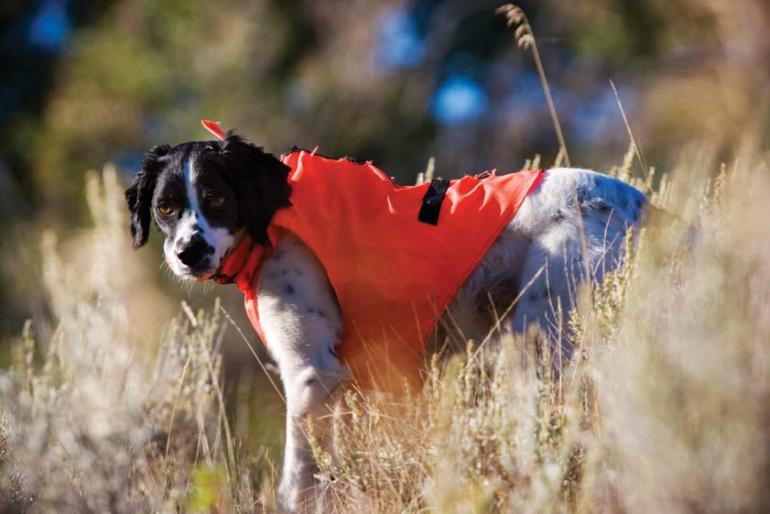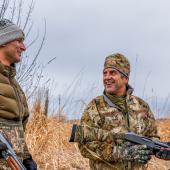First Aid in the Field
This fall, many of you will be heading out into the fields with your bird dogs or going on long hikes with your pets. There are many dangerous medical incidents and problems that can occur with your pet in the field, and whatever happens usually happens quickly. In most cases, you'll be miles away from a vet, so you must be the battlefield medic. Here are a few tips for handling dog emergencies.
Doggie First-Aid Kits
The best preparation for taking care of your dog’s emergency needs is to meet with your vet. Discuss the potential problems that your dog might encounter in the field, and have your vet prepare a first-aid kit for you and teach you how and when to use it.
This past June, the Montana Bird Dog Federation held a three-hour seminar in Bozeman titled "Emergency First Aid for Dogs in the Field." Veterinarian Liz Layne conducted the seminar and Mike Ross, the wolf-control officer for Montana Fish, Wildlife & Parks, showed attendees how to release a dog's from leg-hold traps. This seminar will occur again next June.
Know When to Stop
The greatest threat to dogs in the early fall is heat prostration. September and October can be very hot; many times temperatures are in the 80s and 90s by mid-morning. A dog can only sweat and expel heat from his tongue and paws, and once a dog gets overheated, it becomes a life-threatening situation.
To help prevent heat prostration, carry plenty of water and a small collapsible dish for your dog. Watch your dog; when he's overheated, his tongue will hang out and he'll start panting heavily. That’s the time to stop and rest. Give him water and get him in the shade. If there is no shade, stand up and block the sun from shining on him. I rest my dogs for 15–20 minutes when I’m hunting on a hot day. I don't let them run again until their tongues are back in their mouths and their breathing has slowed. I stop hunting when the air temperatures reach the low 80s.
Essential Gear
In addition to carrying water, I carry a hemostat, which I use to pull out cactus spines and porcupine quills. I also carry a copy of Field Guide to Dog First Aid. This pocket-sized paperback fits easily into a vest or pack, and covers emergency care and how to handle problems for your outdoor dog. It costs $15 and is available at Powder Horn, Greater Yellowstone Flyfishers, Wilderness Adventures Press, and Amazon.com.
It's great fun to have your dog with you on your outdoor adventures. But remember, your dog's life depends on your ability to take care of his emergency medical needs. Be prepared.
Chuck Johnson owns Wilderness Adventures Press, publishers of hunting, fishing, and other outdoor books. He writes a column for Pointing Dog Journal and is the author of Training the Versatile Hunting Dog, among other titles.













